The Oscar

Brief Synopsis
Cast & Crew
Russell Rouse
Stephen Boyd
Elke Sommer
Milton Berle
Eleanor Parker
Joseph Cotten
Film Details
Technical Specs

Synopsis
On Oscar night, nominee Frank Fane anticipates he will be the winner of the award for best actor. His longtime friend, Hymie Kelly, reflects on Fane's rise to fame. In flashback, Fane's career unrolls from its tawdry beginnings: Small-time cabaret performers Frank Fane, Hymie Kelly, and Laurel Scott run afoul of the law and are falsely arrested. They drift to New York, where the ruthlessly ambitious Frank rejects Laurel for a beautiful dress designer, Kay Bergdahl, unaware that Laurel is pregnant by him. Frank's good looks and fast temper arouse the interest of drama coach Sophie Cantaro, who gets him a small acting part and offers to help launch his career. Persuading her agent, Kappy Kapstetter, to take Frank as a client, she manages to get Frank a Hollywood contract with producer Kenneth H. Regan. Frank plunges into a life of extravagance and publicity seeking. He sends for his old friend Hymie to serve as companion and public relations man and asks him about Laurel. Hymie tells him that he married her and she died. During his drive for fame, Frank pauses long enough to arrange for Kay's promotion to studio designer and then to marry her in Tijuana. Before long, Frank's behavior has made him countless enemies and has caused him to become a boxoffice failure despite the critical acclaim given his most recent picture. Dropped by Regan, Frank is promoted by Kapstetter for a TV pilot but walks out on the project when he learns that he has been nominated for an Oscar. Determined to win the award, Frank hires a private detective, Barney Yale, to leak the story of his past arrest to the press, in hopes of turning Academy voter sympathy to himself; but his scheme backfires as Yale tries to blackmail him. Abandoned by everyone, Frank attends the ceremonies alone. Emcee Bob Hope calls Merle Oberon to present the best actor award. Shattered, Frank rises from his seat when the actress reads the name of Frank Sinatra as the winner.

Director
Russell Rouse
Cast

Stephen Boyd

Elke Sommer

Milton Berle

Eleanor Parker

Joseph Cotten

Jill St. John
Tony Bennett

Edie Adams

Ernest Borgnine

Ed Begley
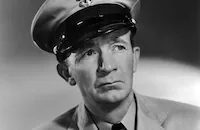
Walter Brennan
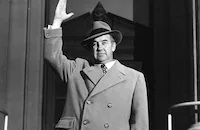
Broderick Crawford
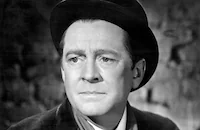
James Dunn

Peter Lawford
Jack Soo
Jean Hale

Edith Head

Bob Hope
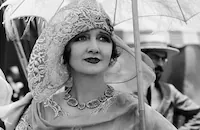
Hedda Hopper

Merle Oberon
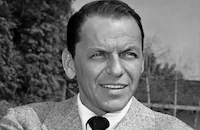
Frank Sinatra
Nancy Sinatra

Eddie Ryder
Chris Alcaide
John Dennis

Peter Leeds
John Holland
Jean Bartel
John Crowther
Crew
Robert R. Benton
Frank Caffey
Sammy Cahn
Leon Charles
Glenita Dineen
Farciot Edouart
Harlan Ellison
Percy Faith
Irving Friedman
Clarence Greene
Clarence Greene
Jack Hayes
Edith Head
Paul K. Lerpae
Joseph E. Levine
Joseph E. Levine
Harry Lindgren
Arthur Lonergan
Robert Magahay
Nellie Manley
Dick Moder
James Payne
Stephen Peck
Hal Pereira
Ralph Rainger
Leo Robin
Russell Rouse
Joseph Ruttenberg
Chester W. Schaeffer
Albert Sendrey
Leo Shuken
Maurie M. Suess
James Van Heusen
Wally Westmore
John Wilkinson

Videos
Movie Clip







Film Details
Technical Specs

Award Nominations
Best Art Direction
Best Costume Design
Articles
The Oscar
Based on a popular novel by Richard Sale, the narrative opens at the Oscar® ceremonies as Hymie Kelly (Tony Bennett), a former friend of Best Actor contender Frankie Fane (Stephen Boyd), relates the entire story in flashback of how Fane finally arrived at the prestigious ceremony and what he did to get there. Think of it as a skid row version of All About Eve (1950). Fane is one of the most repulsive and loathsome individuals ever created for the screen and Stephen Boyd brings him to vulgar life in what is either his worst performance or a brilliant one which takes all of the worst personality traits of a studio-created superstar and revs it up to level eleven, creating a hyperactive cartoon caricature of monstrous proportions. "Tearing through the movie like the Tasmanian Devil," Michael Sauter wrote in The Worst Movies of All Time; Or What Were They Thinking?, Boyd "snarls, sneers, makes sudden menacing gestures, snarls some more, sneers some more, and makes the chords in his neck stick out." It is one of the most physical performances you'll ever see with facial tics, exaggerated hand gestures and robotic body movements becoming the clay which Boyd uses to sculpt his masterpiece.
Fane's rise to fame makes the pulp novels of Harold Robbins and Jacqueline Susann look tame by comparison. We first see him promoting his girlfriend Laurel (Jill St. John) as a stripper in low-rent bars and gin joints in small towns while Hymie collects the cash. Fane quickly moves on from this parasitic relationship after arriving in New York City where his luck improves upon meeting Kay Bergdahl (Elke Sommer), a fashion designer for a ritzy department store. Frankie avidly pursues her and then drops her like a hot potato once he is introduced to Sophie Cantaro (Eleanor Parker), a Hollywood talent scout, at a play rehearsal. In record time, Frankie becomes Sophie's new discovery, relocates to Los Angeles and quickly begins his ascent to stardom, double-crossing, backstabbing and intimidating everyone who crosses his path. Fane's lust for fame is so twisted that he even secretly feeds scandalous details about his own past to newspaper reporters, raising the suspicion that one of his fellow Oscar® contenders did it to sway the voters. Along for the ride every step of the way is Hymie, his childhood friend turned personal assistant but his real purpose seems to be a human doormat for Frankie.
Cast in the role of Hymie, his first - and last - feature film as a dramatic actor, Tony Bennett was pursued for the part by producer Clarence Greene and director Russell Rouse, two longtime fans of the singer. When they saw him make a television guest appearance on The Andy Williams Show, they both "were struck by an extraordinary warmth and sensitivity which came over on the television screen." That convinced Greene and Rouse that Bennett had star potential and he was given a screen test, which led to his legendary bad performance in The Oscar. The real mystery is why Greene and Rouse would cast Bennett as Hymie if they were struck by his "extraordinary warmth." Hymie is a complete cipher, the real mystery at the core of the film. While the screenplay (written by Greene, Rouse and Harlan Ellison) establishes the fact that Frankie and Hymie bonded at an early age over impoverished circumstances and dysfunctional families, there is no explanation for Hymie's unswerving loyalty to Frankie as he witnesses the terrible things he does to others, not to mention his own abusive treatment by the man. Whether intentional or not, Hymie comes across as a born masochist and his lack of self esteem encourages total degradation and humiliation by the sadistic Fane. It's the perfect master-slave relationship and Hymie ends up looking just as creepy and repulsive as his egomaniac friend.
Bennett plays Hymie with an annoying earnestness that alternates between whining and trite moralizing. His entire body posture appears hunched over and cringing most of the film as if he's waiting to be kicked like a dog. His big dramatic scene, where he finally tells Frankie off while acknowledging his own self-loathing, results in one of the funnier exit scenes in movies. Bennett, on the verge of a tearful breakdown, pivots away from Frankie and we see him bolt for the door in a sequence that accents his physical awkwardness in the role. It's as if he's learning to run for the first time and isn't quite sure his legs are working properly. The final embarrassment was probably being singled out as "The Worst Performance by a Popular Singer" in The Golden Turkey Awards by Harry and Michael Medved. So Maybe it's a good thing Bennett didn't pursue other dramatic roles after The Oscar because it might have prevented him from recording some of the records that have made him a living legend today. He's a two-time Emmy award winner, a recipient of the 2005 Kennedy Center honors and was inducted into the Big Band and Jazz Hall of Fame in 1997.
Among the other cast members in The Oscar, Eleanor Parker was singled out the most by critics as giving the best performance as the aging talent scout who is told by one associate, "You're 42. There are many good minutes for you." At this stage in her career, Parker was past the leading lady phase by Hollywood standards and was now specializing in supporting character roles such as Stuart Whitman's alcoholic shrew of a wife in An American Dream (1966) or a wealthy eccentric targeted for murder in Eye of the Cat (1969). In The Oscar, Parker seizes on the melodramatic nature of her role and tosses off the unintentional camp dialogue with a theatrical flair, especially in one ugly post-coital moment with Fane: "Look at me when you talk to me! I'm not some kind of garbage pail you can slam the lid on and walk away," to which Fane replies, "I'm going, old lady." According to Doug McClelland in his biography, Eleanor Parker: Woman of a Thousand Faces, the actress has a special fondness for The Oscar because it was during a publicity tour for the movie that she met her fourth husband, Raymond N. Hirsch, and they are still together today.
Besides Ms. Parker, there are other supporting roles to savor in The Oscar such as Ernest Borgnine as a loud, obnoxious private eye and his tacky, deceptively shrewd ex-wife (Edie Adams), who proves she's a smarter Hollywood player than Fane. Peter Lawford also pops up in a minor role as a former famous actor now reduced to working as a headwaiter in a restaurant. His presence is a disturbing reminder to Fane of the ephemeral nature of stardom and, in some ways, mirrored Lawford's own fall from grace in Hollywood. By the time of the film, Lawford had been excluded from the "Rat Pack" by Frank Sinatra after a falling-out and his leading man movie status had transitioned into supporting roles and cameo appearances in TV series like I Spy and The Wild, Wild West.
The real standout performance in The Oscar though is Milton Berle, delivering a surprisingly sincere, low-key dramatic performance as Fane's much put-upon and unappreciated agent, Kappy Kapstetter. He gets the last laugh though and dismisses Fane with this poolside putdown: "Have you ever seen a moth smashed against a window....leaves the dust of its wings. You're like that Frankie. You leave a powder of dirt everywhere you touch."
Most of the dialogue in The Oscar, in fact, is so quotable and beyond cliché that it's an embarrassment of riches. Take, for example, this exchange between Fane and Kay at their first meeting at a Greenwich Village party:
Kay: "I'm not the kind of woman who uses sex as a release or even as a weapon."
Frankie: "You always talk like that?
Kay: "I try."
Frankie: "Do me a favor, will ya and try dropping it with me. I'm not that smart. You free thinkers confuse me."
Often the screenplay will reference real movie stars to give the proceedings a sense of legitimacy such as this conversation between Fane and his agent:
Fane: What about that spy thing at Warners?
Kappy: "They signed Dean Martin."
Fane: "Dean Martin. That part was right for me!"
Kappy: "Look, I'm not trying to hurt you. I'm just trying to wipe away the fog between you and reality."
1966, of course, was the year that Dean Martin starred in The Silencers, the first of a series of Matt Helm spy comedies but The Oscar is full on insider references and in-jokes. Gossip columnist Hedda Hopper appears as herself in the film and so does costume designer Edith Head. At the finale, set at the Academy Awards, Bob Hope appears as the master of ceremonies, just like he was in real life for many years, and Merle Oberon presents the Best Actor Oscar®. Among the other contenders mentioned we see Frank Sinatra, with daughter Nancy by his side, and mentions of Richard Burton for "Grapes in Winter" and Burt Lancaster for "The Spanish Armada," both fictitious films.
Author Paul Roen noted in his review of The Oscar in High Camp Volume 2, "...the thoroughness with which the book's abundant gay references have been systematically excluded from the screenplay...in the book he [Fane] was an athletic model, nude photographs of whom appeared on a pack of gay pornographic playing cards...Adding insult to injury, the script perversely and persistently underlines its own heterosexuality. At times this becomes downright obsessive, as when, for example, a group of TV executives discuss Frankie's potential as the star of a weekly series: "I don't think we need to worry about Fane being a man." "He looks like a real man." "Hell, he's a man, all right!"
When The Oscar opened theatrically, it was savaged by most critics. TIME: "Even at its awful best, this mindless epic will hardly win anything but booby prizes...The probable Oscar winners: Least Believable Performance by a Supporting Actor: to Singer Tony Bennett, who plays the star's stooge as though someone had half-persuaded him that a crooner can burst into tears as easily as he bursts into song. Least Performance by an Actor: Stephen Boyd, who literally wrings his hands in moments of crisis. His portrait of a snaky, sniveling contender at the Oscar countdown should be shown exclusively in theatres that have doctors and nurses stationed in the lobby to attend viewers who laugh themselves sick."
The New York Times called it "Another distressing example of Hollywood fouling its nest - professionally, commercially and especially artistically...Obviously the community doesn't need enemies so long as it has itself." And The N.Y. Herald Tribune chimed in with "Heels may get to Hollywood but once there, rest assured, they do not win Oscars. This is the comforting message of The Oscar, a film that should ideally be viewed with your head under a hair drier - in or out of a beauty parlor. Otherwise you run the risk of hearing clearly some of the raunchiest dialogue ever to emanate from big screen - with plot and characters to match."
The final irony is that despite The Oscar's poor critical reception it did actually receive two Academy Award nominations - one for Best Art Direction-Set Decoration and one for Best Costume Design by Edith Head - though neither won in its category.
Producer: Clarence Greene
Director: Russell Rouse
Screenplay: Harlan Ellison, Clarence Greene, Russell Rouse, Richard Sale
Cinematography: Joseph Ruttenberg
Art Direction: Arthur Lonergan, Hal Pereira
Music: Percy Faith
Film Editing: Chester W. Schaeffer
Cast: Stephen Boyd (Frankie Fane), Elke Sommer (Kay Bergdahl), Milton Berle (Alfred 'Kappy' Kapstetter), Eleanor Parker (Sophie Cantaro), Joseph Cotten (Kenneth Regan), Jill St. John (Laurel Scott), Tony Bennett (Hymie Kelly), Edie Adams (Trina Yale), Ernest Borgnine (Barney Yale).
C-119m.
by Jeff Stafford
SOURCES: Filmfacts
The Golden Turkey Awards by Harry and Michael Medved (Perigee)
The Worst Movies of All Time; Or What Were They Thinking? by Michael Sauter (Citadel Press)
High Camp: A Gay Guide to Camp and Cult Films Vol. 2 by Paul Roen (Leyland Publications)

The Oscar
Quotes
Like a junkie shooting pure quicksilver into his veins, Frankie got turned on by the wildest narcotic known to man: success! The parts got bigger and bigger... Frankie got hungrier and hungrier.- Hymie Kelly
I never said anything about creaming Barney Yale.- Frankie
Birdseed!- Hymie Kelly
Will you stop beating on my ears! I've had it up to here with all this bring-down!- Frankie Fane
Are you a tourist or a native?- Frankie Fane
Take one from Column A and two from Column B. You get an egg roll either way.- Kay Bergdahl
You finally made it, Frankie! Oscar night! And here you sit, on top of a glass mountain called "success." You're one of the chosen five, and the whole town's holding its breath to see who won it. It's been quite a climb, hasn't it, Frankie? Down at the bottom, scuffling for dimes in those smokers, all the way to the top. Magic Hollywood! Ever think about it? I do, friend Frankie, I do...- Hymie Kelly
Trivia
This film opens with footage of stars' arrivals shot outside an actual mid-1960s Academy Awards ceremony, with the year of the event carefully obscured in all wide angles.
The Academy Award sequences for this film were shot at the Santa Monica Civic Auditorium, scene of several actual 1960s Oscar ceremonies.
Bob Hope, who plays the Master of Ceremonies in this film's Oscar sequences, hosted more Academy Awards shows than anyone else in Hollywood history.
Eight-time Academy Award winner Edith Head, who was an Oscar nominee for her costume designs for this film, makes a rare cameo appearance as herself in a scene set at a Hollywood party.
Set designer 'Hal Perria' appears at a party that Frankie goes to full of other Paramount people.
Notes
Additional song: "Carmen Carmelo" (traditional). Footage of actual Academy Awards presentations is included in the film.

Miscellaneous Notes
Released in United States 1966
Bob Hope had a guest appearance.
Released in United States 1966













